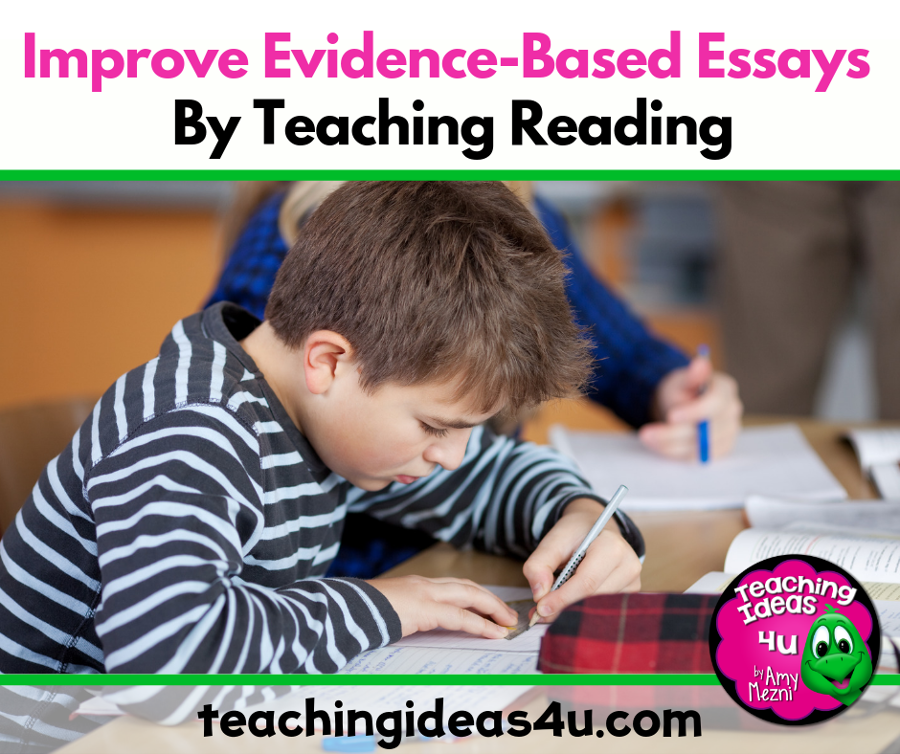Improve Evidence Based Essays by Teaching Reading
Citing evidence to support your thesis is hard – but adding analysis of that evidence is even harder. I came to this conclusion after teaching evidence-based essays to upper elementary students. Many students understand how to write a thesis statement or the topic sentence, but then struggle with the meat of their essay.
Students can also find evidence to support their thesis, but they struggle to use it effectively. They want to simply copy it and stick it somewhere in their essay body.
When teaching evidence-based writing, teachers should prepare to focus on a few specific skills:
Writing a thesis statement.
Citing evidence in different ways.
Appropriately crediting the source of a piece of evidence.
Adding analysis to explain how the evidence supports the thesis.
Writing an effective conclusion.
In my class, the bulk of my writing instruction focused on #2, #3, and #4. No matter how well I demonstrated how to cite evidence and add analysis, some students just didn’t get it.
Using Reading as Examples of Effective Writing
One day I realized that when I wanted to learn a new skill I always searched for examples. In my writing lessons I showed students the process, but I didn’t really analyze examples of evidence-based writing. Many teachers use mentor texts to teach narrative writing skills, so why not use them for teaching evidence-based writing?
Many upper elementary teachers teach language arts and/or science and/or social studies, so integrating the subjects would be fairly easy. (Teachers on teams could coordinate lessons within a unit.) There are many types of evidence-based writing teachers could use as mentor texts:
Editorials (in newspapers or magazines)
A well-written editorial will have a thesis and multiple pieces of evidence to convince readers of their point. Teachers could use an editorial on a high-interest topic to demonstrate selecting and citing evidence, as well as how the author explained how the evidence supported their thesis.
Scientific articles
A scientific article is all about the evidence. These may be harder to find on grade-level. Teachers could look for science magazines for students.
Historical Articles
Historical articles based on new findings or archaeological sites will also state theories that are based on evidence.
Debates
Watching a piece of a recorded debate might benefit auditory learners and would provide a different example of using evidence. I recommend that teachers prescreen a debate to make sure that the debaters do cite evidence. A more advanced lesson might be to watch a debate and track which speaker used the most convincing evidence (compared to using emotion.)
Nonfiction Books
Some nonfiction books would make good mentor texts for evidence-based writing. For an informative essay, teachers could use books that explain different causes of a problem or compare two or more things (people, animals, people, laws, etc.). For opinion examples, teachers could use books that explain both sides of an issue.

